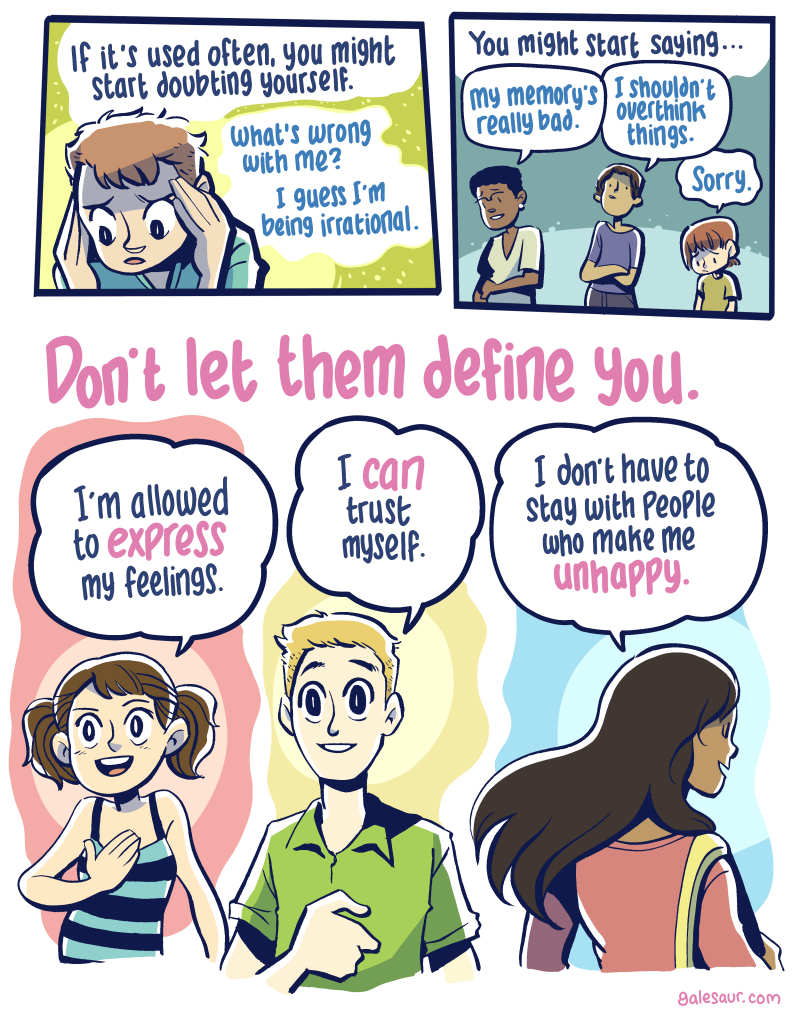Comic Explains the Psychological Torment of Gaslighting

By:
Gaslighting, a form of abuse centered on psychological torment, has come up in several high profile conversations about President-Elect Donald Trump. A recent viral Teen Vogue piece by Lauren Duca claimed that Trump is gaslighting the country, and many others have voiced the same concern about his political tactics.
With gaslighting receiving mainstream exposure as a result of the current political climate, some might be wondering what exactly this form of abuse entails. The following comic by cartoonist Gale Galligan paints a detailed portrait of what it means to experience gaslighting:
.jpg?auto=format&crop=faces&fit=crop&q=60&w=736&ixlib=js-1.1.0) Tumblr - tumblr.com
Tumblr - tumblr.com
As evident in the comic, gaslighting is when an abusive partner makes their victim question their own reality, according to the National Domestic Violence Hotline. Abusers may deny abusing their partner and claim that the victim's recollection of the abuse is inaccurate.
This creates a lot of doubt in the victim, as shown in the second part of Galligan's comic:
 Tumblr - tumblr.com
Tumblr - tumblr.com
"The thing with manipulation techniques like this is they’re often slow and subtle," Galligan wrote in her Tumblr post about the comic. "They can be very small instances - small enough that you feel petty even arguing over them - but over time, they build up. Each little manipulation can cause you to doubt your own interpretation of the next little thing that happens. They cause you to lose faith in your greatest ally - yourself."
The term gaslighting comes from a 1938 play titled "Gaslight," which tells the story of an abusive marriage. In the play, a woman's abusive husband dims the gaslights in their home but tells her that she is imagining the lights dimming. His abusive behavior toward her starts to make her think that she is going insane.
Experts say that gaslighting has three stages: disbelief, defense, and depression.
In the first stage, victims start to notice strange behavior in their partners but think that it might just be random or isolated incidents, according to psychoanalyst Robin Stern Ph.D. Stern wrote in a May 2009 piece for Psychology Today that stage two involves calling the abuser out on their actions, only for the victim to be criticized themselves and told that they're the one with the problem. By stage three, victims are often mentally worn down and unhappy.
"Gaslighting typically happens very gradually in a relationship; in fact, the abusive partner’s actions may seem harmless at first," the National Domestic Violence Hotline states on its website. "Over time, however, these abusive patterns continue and a victim can become confused, anxious, isolated, and depressed, and they can lose all sense of what is actually happening. Then they start relying on the abusive partner more and more to define reality, which creates a very difficult situation to escape."
[H/T Reddit]
If you are the victim of domestic abuse and are looking for help, you can reach the National Domestic Violence Hotline at 1-800-799-7233.
